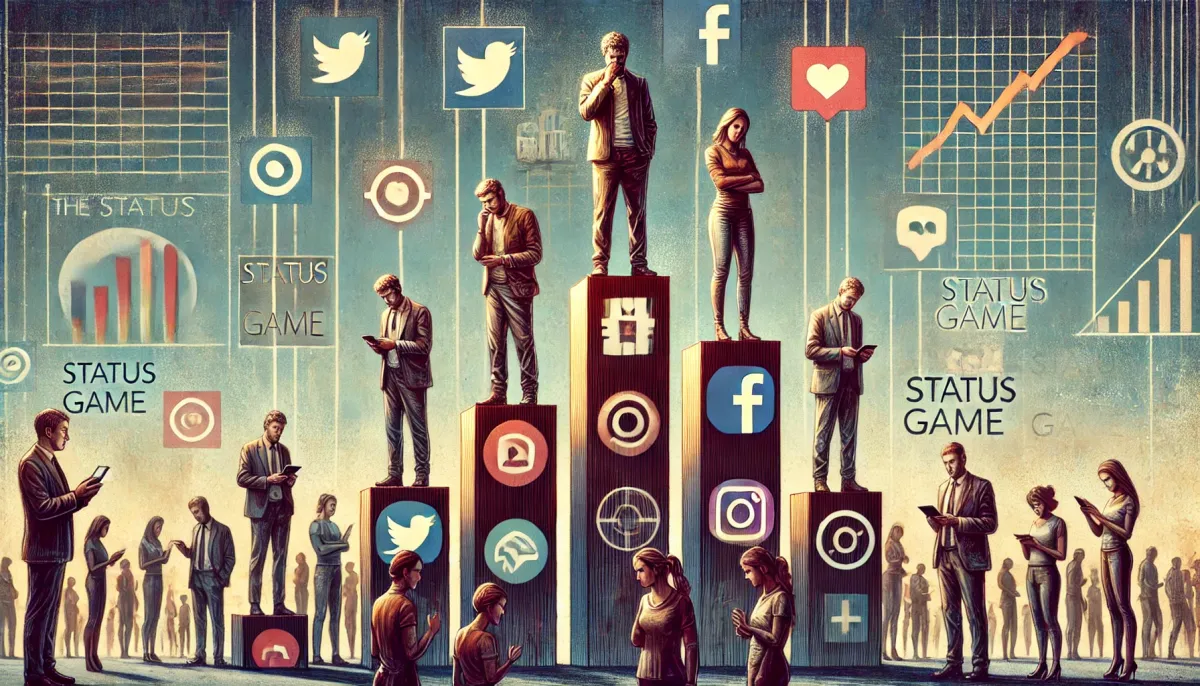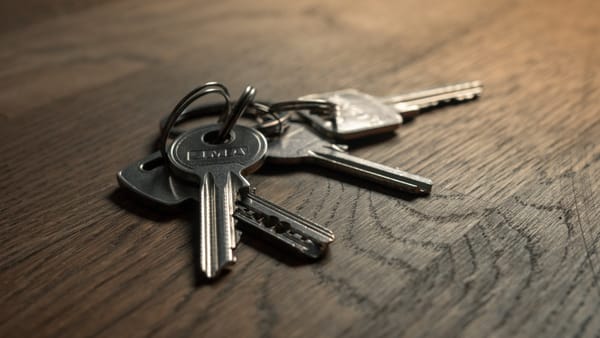Status game: quit it!
The quicker you learn to recognize it, see yourself doing it and then to know how to stop it, the better will be your life, career, and almost everything.

Stop playing a status game!
You can stop here if you know what to do with this statement or read further.
The quicker you learn to recognize it, see yourself doing it and then to know how to stop it, the better will be your life, career, and almost everything.
Status Game!
People often play the status game. If you think about it, it is one of the worst thing you can do to yourself. Recognizing it and learn how to avoid it is the most critical skill for you in your development in life, work, or any other capacity.
What is the status game? How people play it? How can you fall into it?
Let's dive in.
Is status a bad thing?
Before diving in, let's unpack one hard ball - Is status a wrong thing?
Nope! Status is how we are being recognized and for what we are being recognized.
People are being seen/are assigned status in multiple ways. By merit, age, wealth, look, popularity.
In one way or another you have your status and you will be assigned/judged by it.
Problem starts, when you are starting to play status game with other people, motivated by external factors.
Guilty as charged
I spoke with my business partner about the cars. It doesn't happen very often; I'm not a car guy.
I wasn't driving anything fancy but on a bit fancier side. I remember saying: "It drives well, and it is worth it."
My business partner said: "Let's face it, other cheaper cars drive as well. You bought it for status." Boy, on the second thought, he was right. I used this lesson last year when choosing a new car after almost 10yrs.
Status. You, me, we all get a hit of whatever gets our brain spins with pleasure if someone recognizes our status. It is our wiring from deep in our past.
It was needed not to get killed by some animal abandoned by our tribe. Displaying a status plays a social role, and in some situations, you need it.
Problem and status game begins when the need for status is your driving force and it is a need for external confirmation that drives it. You do things to get and confirm your status. It is a losing game from the beginning.
There always will be someone with more wealth.
There always will be someone earning more money.
There always will be someone with a more fancy car.
There always will be someone with a better-sounding title in the footer.
There always will be someone with more followers on Instagram.
There always ... put your ending here.
The moment you entered a status game, you've already lost. It becomes your distraction; you devote time and energy to pursue the status with no end in sight for this process. You will always be one step behind, and you will always see the next level in your position, which you can get.
One more, and you will be done.
Sounds like an addict?
Status game drains you, your resources, and attention - it is a distraction
If you look around, you will recognize people who play status games. They might look successful in the metrics of status - followers, position, wealth. Yet, they are always looking and planning the next level of it.
When they meet with someone, they don't meet to learn something but be within the next circle of people with higher status to elevate their own.
When they talk about someone, they always highlight the other person's title, achievements, and status elements (wealth, company revenue, size, what they accomplished). You don't need to know all of it to have an interesting conversation with someone who has something interesting to say.
Pursuing the company of people with higher status for the sake of elevating your own (by association) is one of the most common projections of the status game at a personal level.
To maintain your status and always think about its next level, you need to sacrifice something. It is time and attention to focus on things that matter.
You are learning a new skill, improving on leveraging your strengths. Network with people who has some ideas to exchange can coach you on your professional progress.
People who are accomplished and don't play a status game are quiet.
You would be surprised how many intelligent, accomplished people who built companies and businesses or created a breakthrough in their field are out there. The fact that they are not flashy isn't a disadvantage for them. They are not interested in it, as it is a distraction.
They are professionals; they are accomplished, very often; they are very well off if you think in financial terms. They leave the status game for others.
Be a pro! Status and happiness will follow
There are two ways to get your status.
You can build it by playing the status game of associating yourself with others with higher status.
The other way is a way to be professional. To build your expertise, which is always a hard currency.
To deliver things on time and deliver if promised - this is a sign of a pro. Take tasks even if those are hard and solve them. Do all it in a repeatable, consistent way over a long period, not caring about being flashy, known, and have a fancy title.
By no means I'm not saying that you should sit and never show-up. Part of being a professional is about you having a voice. You need to have your opinion and express it. Have a saying in your industry when asked. Let people know you by presenting your work and results.
A good example is building a personal brand. You need your brand, and you should create it over time. Yet, when I see a person stating that they are building a personal brand as their primary task, I know they are in a status game. They lost already.
Become a professional with a voice! Happiness and status will follow.
You will gain your status because of people valuing your expertise and work ethic.
Go for a shortcut of getting a job with a fancy title to put it on your resume before the "next big move," and you will never be satisfied again. There always be the following status to gain.
How to recognize you are playing this game?
First, you need to develop a habit of asking simple questions:
Why am I doing it?
Whatever you plan to do, ask yourself this question and give yourself an honest answer.
Are you doing it for yourself? Will it add to you being a professional and successful? Are you doing it because you want to elevate your status, impress someone or please your need to match someone?
It is an intrinsic vs. external motivation question.
Do you want to get promoted because you can create better leverage for you and your team in a new position? Are you doing it because your peers are already team leads or managers?
Are you discussing this new job because it will let you develop new skills and work with interesting people, or think this job is tedious? Still, is it the right step in the career before going for the next level?
Are you buying this car (or anything else) because it will contribute to your life somehow (make it easier, feel better, solve a problem)? Are you doing it because you want to let people know that you can do it and impress them?
If you can't give yourself an honest answer, you are doing it for your higher goal or personal happiness. It isn't 100% intrinsic motivation: Warning! the status game might be in play.
Are you saying we all should wear the same clothes to hide our status?
Hell no!
Displaying a status is our social thing. We do it all the time.
In many ways, you need to express some level of status in your social interactions. So yes, you will wear fancy clothes, you will drive a good car or have a fancy watch. You will have successful social media profiles and thousands of followers.
The question is if it is an essence. If stripped with all it, would you still be a recognized professional and have something to say. Would people want to talk to you, and what kind of people would those be? People who you would like to hand around with or people who are building their status on yours?
Over the years, I've met a lot of people we would call "successful." Those who accomplished a lot were quiet, and you would not recognize it about them. Yet when you spoke with them, you very realized their status. They were smart, they knew their game, and they knew it.
It gave them self-awareness and confidence!
They didn't need an external status to make use of it. And pursuing it was a waste of time and resources for them.
I can't stress it enough - stop playing the status game.
Become a professional. The status will follow. Looking back on my 20+ years of career, not playing this game helped me a lot. Yes, I missed many things:
- Fancy dinners.
- Invitations to meet well-known public figures.
- Fancy parties.
- Expensive resorts.
- Meeting people with wealth and power.
In the long haul - all those things are not necessary. I also know now that every time I felt terrible and miserable, it was one of two things:
#1 - Trying to do something I'm not good at and what I don't want to do
#2 - Trying to play a status game.
In a lot of cases, both of these reasons were present together.
Don't do it!
As a supplement, here is a The Knowledge Project podcast episode with Seth Godin. In this episode, among other things, Seth talks about:
- Status game and how it hurts you in a long haul
- What does it mean to be a professional?
In this episode, you will find a lot about being a professional and playing your game to avoid playing a status game.




